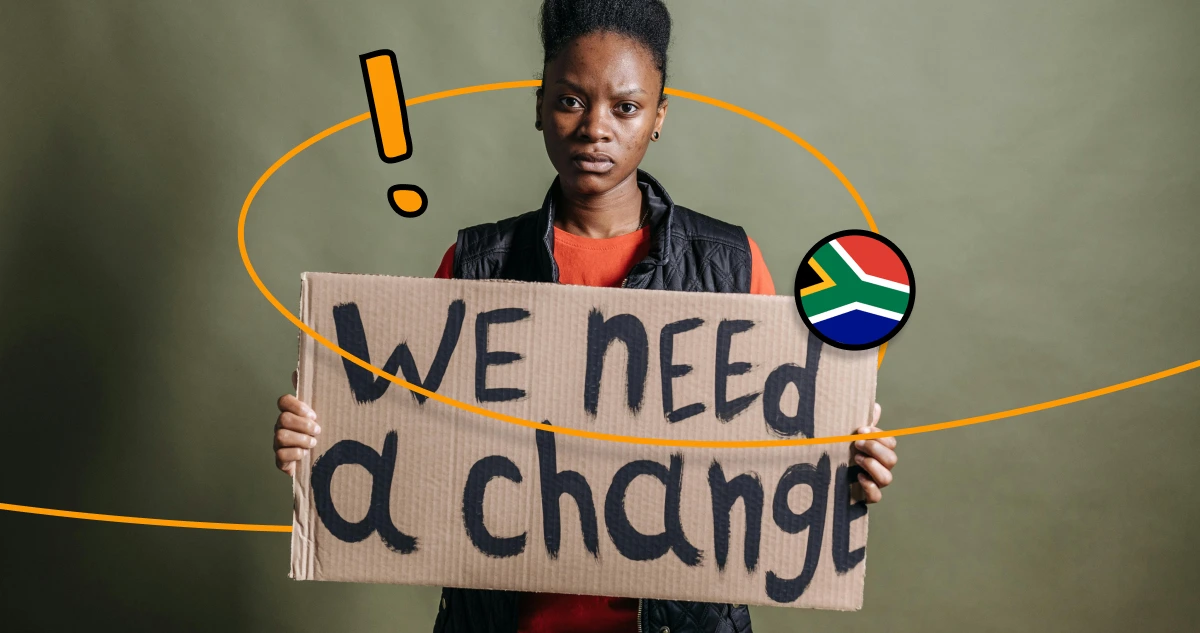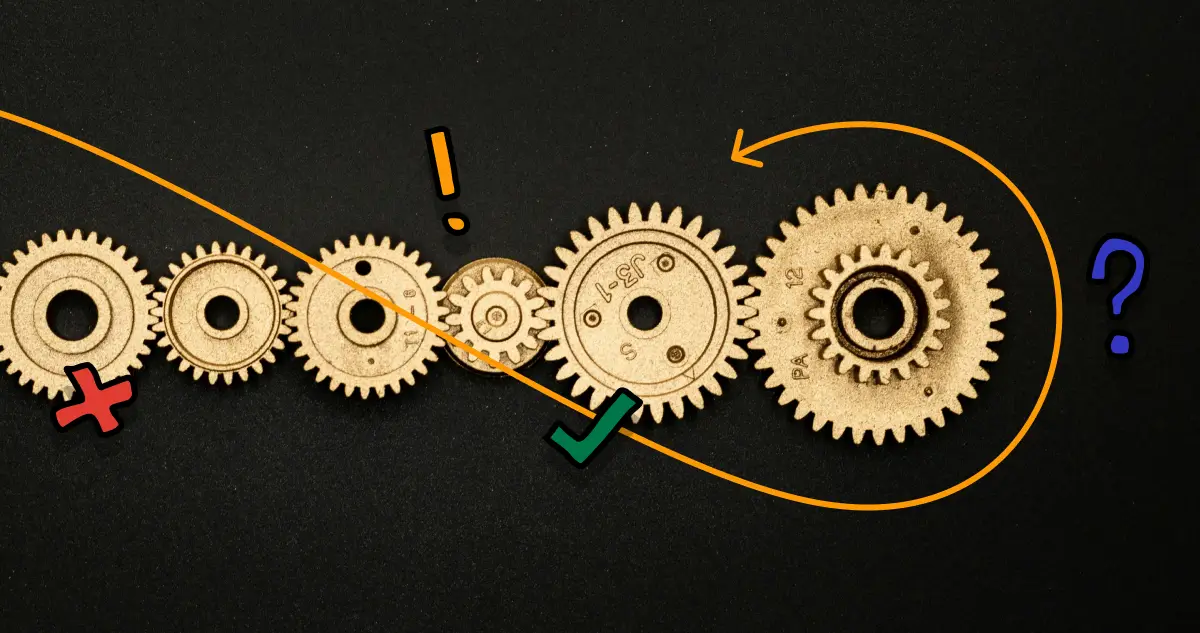ParliMeter at PEMO Conference: Can Digital Tools Renew Trust in Democracy?
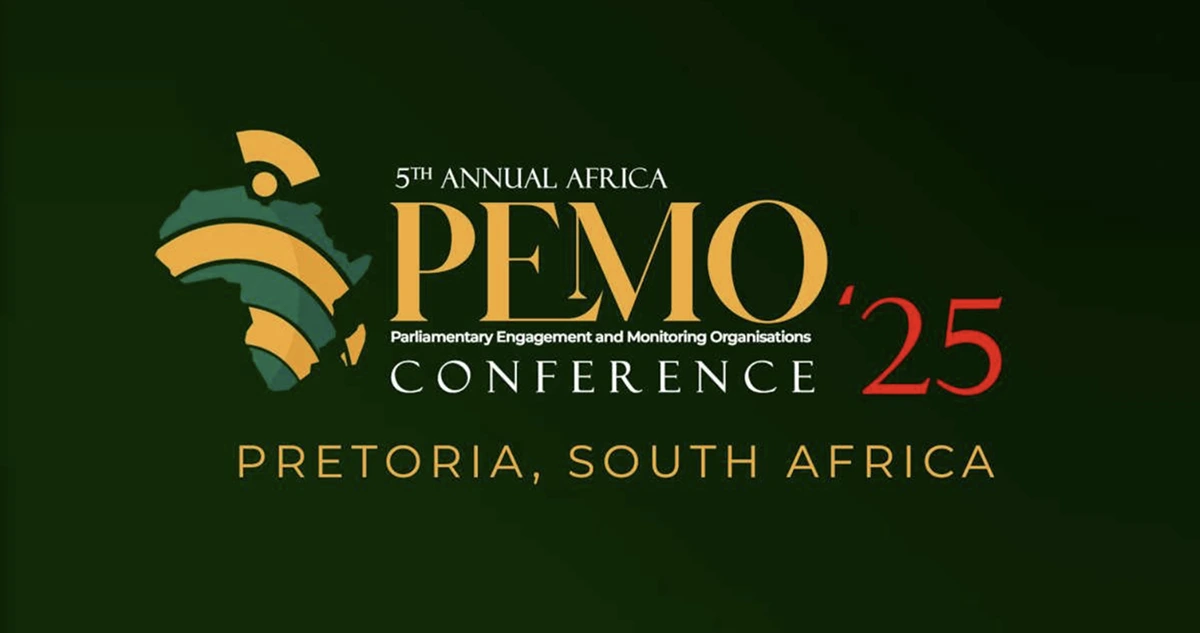
ParliMeter sparked debate at the 5th Annual Africa PEMO Conference, proving civic tech can reconnect citizens and parliaments across Africa.
A Brief History of APMON
Democracy thrives when citizens can see, question, and influence what their parliaments do. That’s the driving spirit behind the Africa Parliamentary Monitoring Organizations Network (APMON), a coalition of civil society groups from across the continent working to keep legislatures transparent, accountable, and closer to the people.
APMON began in 2015, when the Ghana Center for Democratic Development (CDD-Ghana) mapped Parliamentary Monitoring Organisations (PMOs) across Africa. The findings: parliaments too often operate behind closed doors, and citizens lacked the tools to hold them accountable. That survey sparked a continental movement that, after years of groundwork, officially became APMON in 2022.
Since then, the network has convened regional gatherings in Ghana (2015, 2021), Kenya (2023), and Uganda (2024), helping PEMOs swap ideas, sharpen their tools, and showcase how citizen action can push parliaments toward openness. One of its biggest breakthroughs was the Open Parliament Index (OPI), launched in 2022, which now benchmarks legislatures on transparency and accountability.
Why This Conference Matters
The Africa PEMO Conference 2025 wasn’t just another meeting. It was a rallying point for reimagining democracy on the continent. This year’s gathering created a space for:
- Dialogue and mutual learning between civil society and legislatures.
- Peer exchange on proven ways to co-create democratic solutions.
- Rebuilding trust by putting openness and accountability front and centre.
This year’s conference, hosted by the Parliamentary Monitoring Group (PMG) (16–18 September 2025 at the University of Pretoria) drew more than 40 civil society organisations, legislators, and regional bodies. Under the theme: “Back on Track: Renewing the Dialogue Between Legislatures and Civil Society”. The fundamental message was clear: democratic drift is not inevitable. Citizens across Africa still want to believe in Parliament as the people’s house. But for that faith to survive, they need evidence that legislators are listening, acting, and accountable. Without renewed dialogue, democracy risks becoming a spectator sport rather than a shared project.

Highlights included:
- Dialogue between CSO’s and legislatures
- Peer exchange on democratic solutions
- Launch of the second OPI, raising standards across Africa
Monitoring Parliament in Practice
One of the most energetic sessions was the “Monitoring Parliament: Tips and Tools” where 4 presenters showcased how civic monitoring is evolving:
- PMG - On the Record: providing insight to archiving committee proceedings to strengthen institutional memory.
- Mzalendo - Crowdsourcing Monitoring (Kenya): discussing crowdsourcing citizen oversight to make MPs directly answerable to voters.
- OUTA - Monitoring Parliamentary Efficiency: presented the ParliMeter dashboard which tracks MP attendance, committee activity, and bill progression in real time.
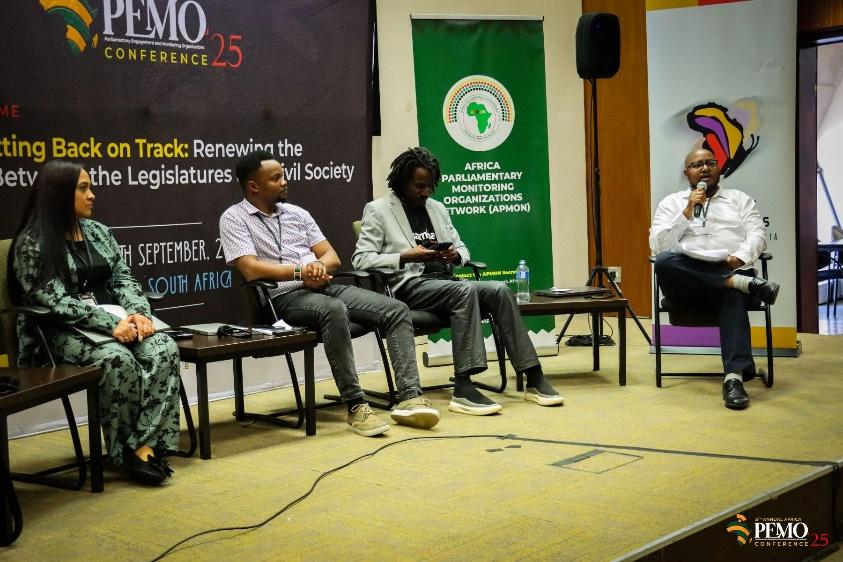
What makes the ParliMeter unique is not just the data it collects, but the civic imagination it unlocks. Citizens can transition from being passive observers to active watchdogs, thus transforming statistics into accountability, thereby empowering citizens to become more informed and active participants in democracy.
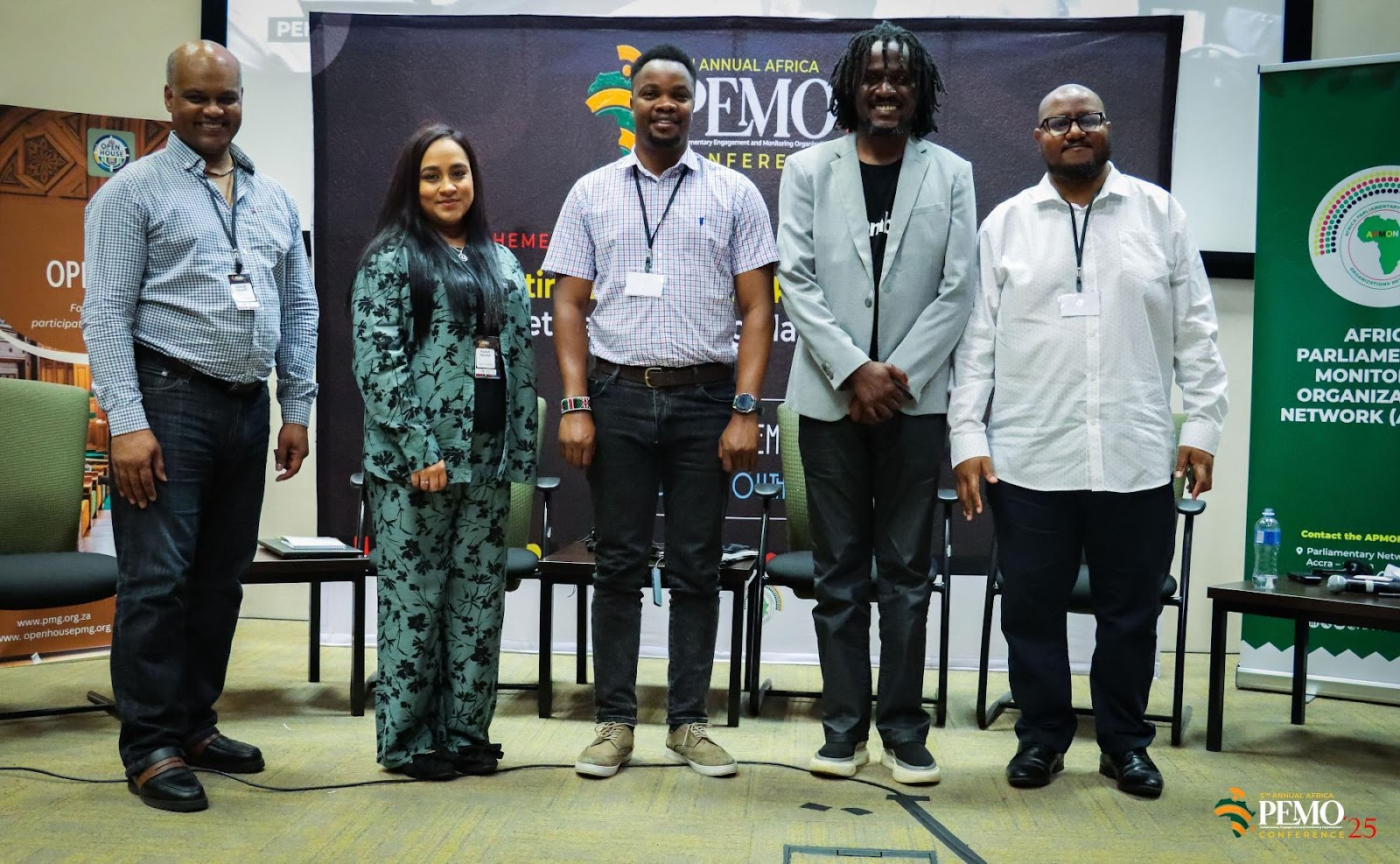
OUTA’s Challenge from Data to Action
Drawing on years of exposing South Africa’s parliamentary failures, OUTA reminded delegates that transparency is only step one. ParliMeter is designed to:
- Expose gaps when MPs are absent or when bills mysteriously stall.
- Equip CSOs, journalists, and researchers with structured data for advocacy.
- Educate communities, including rural and township citizens, to demand accountability in service delivery.
OUTA’s Case Studies: Turning Data Into Action
OUTA produced two case studies that highlight how civil society can transform oversight from abstract ideals into practical, people-powered tools.
1. Enhancing Parliamentary Oversight and Accountability in South Africa through ParliMeter
South Africa’s Parliament has long struggled with weak accountability and poor follow-through. OUTA, PMG and OpenUp responded with the ParliMeter dashboard, which pulls together real-time data on MP attendance, committee performance, and the progress of bills. The power of the tool lies in how it makes information usable. Instead of spreadsheets hidden away in Parliament, communities described it as “power we didn’t have before.”
The case study demonstrates how civic tech can empower citizens to demand accountability, while also nudging Parliament itself to take oversight more seriously.
2. Citizenry voices echo to keep the People’s Parliament answerable Oversight and Accountability in South Africa’s 6th and 7th Parliaments – An OUTA perspective
OUTA’s second case study offers a hard-hitting analysis of South Africa’s parliamentary track record. In the 6th Parliament, only one of eleven committees was rated “laudable,” while the rest were deemed “lamentable.” Oversight was often symbolic rather than substantive, with critical recommendations from the Zondo Commission left to gather dust. Instead of course correction, the 7th Parliament inherited the same culture of weak oversight and unresolved backlogs. However, it also shows how civil society stepped into the gap: OUTA’s reports and ParliMeter are equipping citizens and watchdogs with the evidence they need to push for genuine reform. As one citizen bluntly put it:
“The information is not out there, transparency is the problem, they don’t want us to really know what they are doing.”
Together, these case studies highlight OUTA’s message: democracy cannot survive on promises alone. It needs data, scrutiny, and active citizens turning information into action.
A Continental Turning Point
By putting ParliMeter alongside initiatives like Mzalendo, the conference made one thing clear: Africa’s democratic renewal won’t come from top-down reforms alone. It will be co-created by citizens and civil society who refuse to accept opacity as normal.
Back on Track, But for How Long?
The conference closed with a collective call to action: parliaments must open their doors wider, and citizens must walk through them armed with tools like ParliMeter. The PEMO 2025 left participants with a provocative question: Will parliaments choose transparency willingly or will citizens have to demand it relentlessly?

Work with us
We are looking for resource and data partners!
If you or your organisation would like to contribute or collaborate, please get in touch.
You might also like

ParliMeter is ready for 2026 – and looking back on 2025

What goes into Monitoring Parliament? Behind the scenes with PMG’s Monitors!
.webp)

